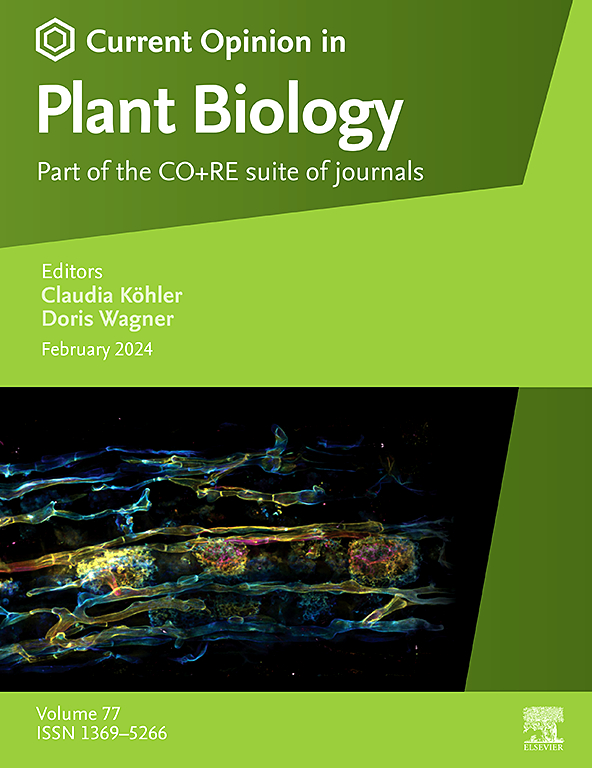Genomic balance effects on gene expression and the organism
IF 7.5
2区 生物学
Q1 PLANT SCIENCES
引用次数: 0
Abstract
Changes in dosage of individual chromosomes have long been known to have detrimental effects on the phenotype. Molecular analyses have revealed that aneuploidy affects gene expression across the genome with the major effects being direct and inverse correlations with the varied dosage. The inverse effect is typically more prevalent especially in aneuploids with an increased chromosomal dosage. Small heterozygous deletions removing one of the two copies of a gene typically exhibit a gene dosage effect for the included genes, but larger aneuploids exhibit the global modulations. When the inverse effect also operates on the target genes being varied in an aneuploid, dosage compensation results with expression levels similar to the corresponding genomically balanced control. Most substantial aneuploids alter the total transcriptome size but with subsets of genes deviating from the general trend. The greatest reductions in transcriptome size are associated with the most detrimental phenotypic effects on the organism. Aneuploidy effects in the endosperm involve a maternal to zygotic balance or a cumulative effect typical of other tissues. Genomic balance analyses reveal the stoichiometric effects on gene regulation, the trajectory of duplicated genes in evolution, and the eventual consequences for the organism.
基因组平衡对基因表达和机体的影响
人们早就知道,单个染色体剂量的变化对表型有不利影响。分子分析表明,非整倍性影响整个基因组的基因表达,其主要影响与剂量的变化呈正相关和负相关。相反的效果通常更普遍,特别是在染色体剂量增加的非整倍体中。小的杂合缺失去除一个基因的两个拷贝中的一个通常表现出基因剂量效应,但较大的非整倍体表现出全局调节。当反向效应也作用于非整倍体中变化的靶基因时,剂量补偿结果的表达水平与相应的基因组平衡对照相似。大多数实质性的非整倍体改变总的转录组大小,但与亚群的基因偏离一般趋势。转录组大小的最大减少与生物体中最有害的表型效应有关。胚乳的非整倍体效应涉及母体与合子的平衡或其他组织的典型累积效应。基因组平衡分析揭示了化学计量学对基因调控的影响,在进化中复制基因的轨迹,以及对生物体的最终后果。
本文章由计算机程序翻译,如有差异,请以英文原文为准。
求助全文
约1分钟内获得全文
求助全文
来源期刊

Current opinion in plant biology
生物-植物科学
CiteScore
16.30
自引率
3.20%
发文量
131
审稿时长
6-12 weeks
期刊介绍:
Current Opinion in Plant Biology builds on Elsevier's reputation for excellence in scientific publishing and long-standing commitment to communicating high quality reproducible research. It is part of the Current Opinion and Research (CO+RE) suite of journals. All CO+RE journals leverage the Current Opinion legacy - of editorial excellence, high-impact, and global reach - to ensure they are a widely read resource that is integral to scientists' workflow.
 求助内容:
求助内容: 应助结果提醒方式:
应助结果提醒方式:


